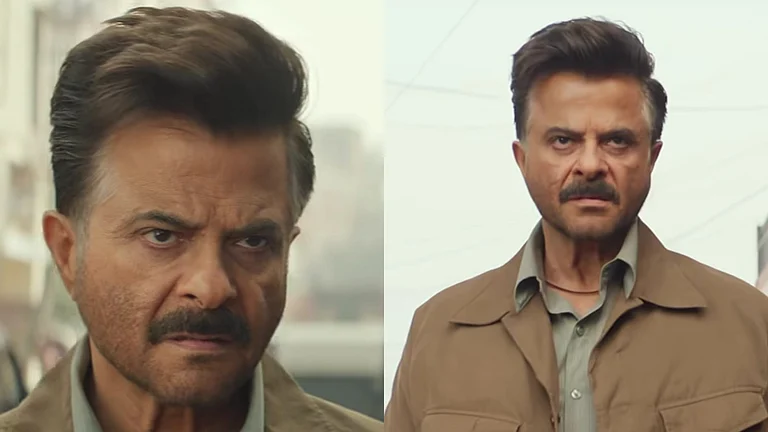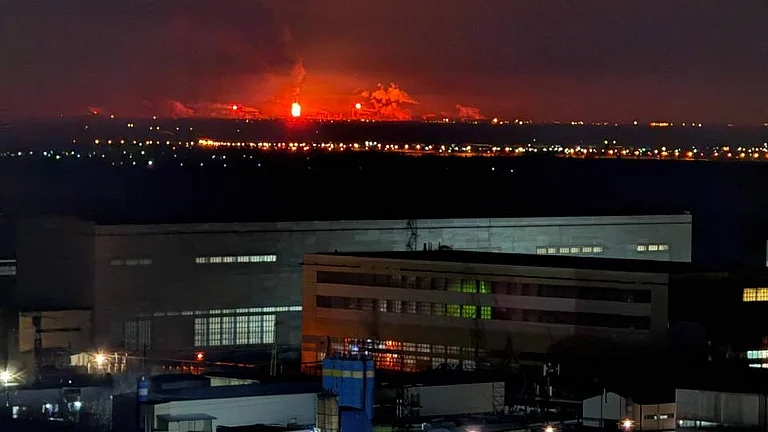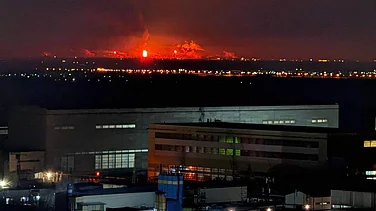At least 103 people died in the twin blasts in Iran on Wednesday that rocked the commemoration for prominent Iranian general Qasem Soleimani who was killed in 2020 by a US drone strike.
Islamic State has claimed responsibility for the attack, as reported by Reuters. The group posted a statement on its affiliate Telegram channels.
Iran's leaders have vowed to punish those responsible for the blasts, which have left over 200 injured.
Authorities in Iran said Thursday would be a national day of mourning.
Iran Blast | Key Updates
103 Killed, Over 200 Injured
At least 103 people were killed and over 200 injured after two blasts, minutes apart, rocked a massive gathering in the city of Kerman in Iran on Wednesday.
The gathering marked the fourth death anniversary Gen. Qasem Soleimani, the head of the Revolutionary Guard's elite Quds Force who was killed in a US drone strike in Iraq. The explosions occurred near his gravesite as long lines of people gathered for the event.
Iran Vows 'Harsh Response'
Iran's Supreme Leader Ayatollah Ali Khamenei said the attackers will face “a harsh response”, though he didn't name any possible suspect. Iranian President Ebrahim Raisi also vowed that the perpetrators will be punished. "Undoubtedly, the perpetrators and leaders of this cowardly act will soon be identified and punished,” Raisi said.

Iranian state television and officials described the attacks as bombings, without immediately giving clear details of what happened. The first bomb went off around 3 pm, and the other detonated about 20 minutes later, the Iranian interior minister, Ahmad Vahidi, told state television. He said the second blast killed and wounded the most people.
Second Blast Killed The Most People: Visuals that surfaced on social media of the blast matched officials' account that said the first blast happened about 700 metres (765 yards) from Soleimani's grave in the Kerman Martyrs Cemetery near a parking lot.
The crowd then rushed west along Shohada Street, where the second blast struck about a kilometre (0.62 miles) from the grave.
Militants often deploy a delayed second explosion to inflict more harm by targeting the emergency responders who are assisting in the aftermath of an attack, resulting in increased casualties.
Who Was Qasem Soleimani?
Soleimani was touted as the "architect" of Iran's regional military activities and is hailed as a national icon among supporters of Iran's theocracy.
Soleimani is considered a key figure in helping secure Syrian President Bashar Assad's government after the 2011 Arab Spring protests against him turned into a civil, and later a regional war that still rages today.
Soleimani had been relatively unknown in Iran until the 2003 US invasion of Iraq. His popularity grew after America called for his killing over his role in arming militants with penetrating roadside bombs that killed and maimed US troops.

Soleimani, who over the next decade emerged to become Iran's most recognisable battlefield commander, ignored calls to enter politics but grew as powerful.
In 2020, a drone strike launched by the Trump-led administration of US killed the general, which was seen as a part of escalating incidents that followed America's 2018 unilateral withdrawal from Tehran's nuclear deal with world powers.


























